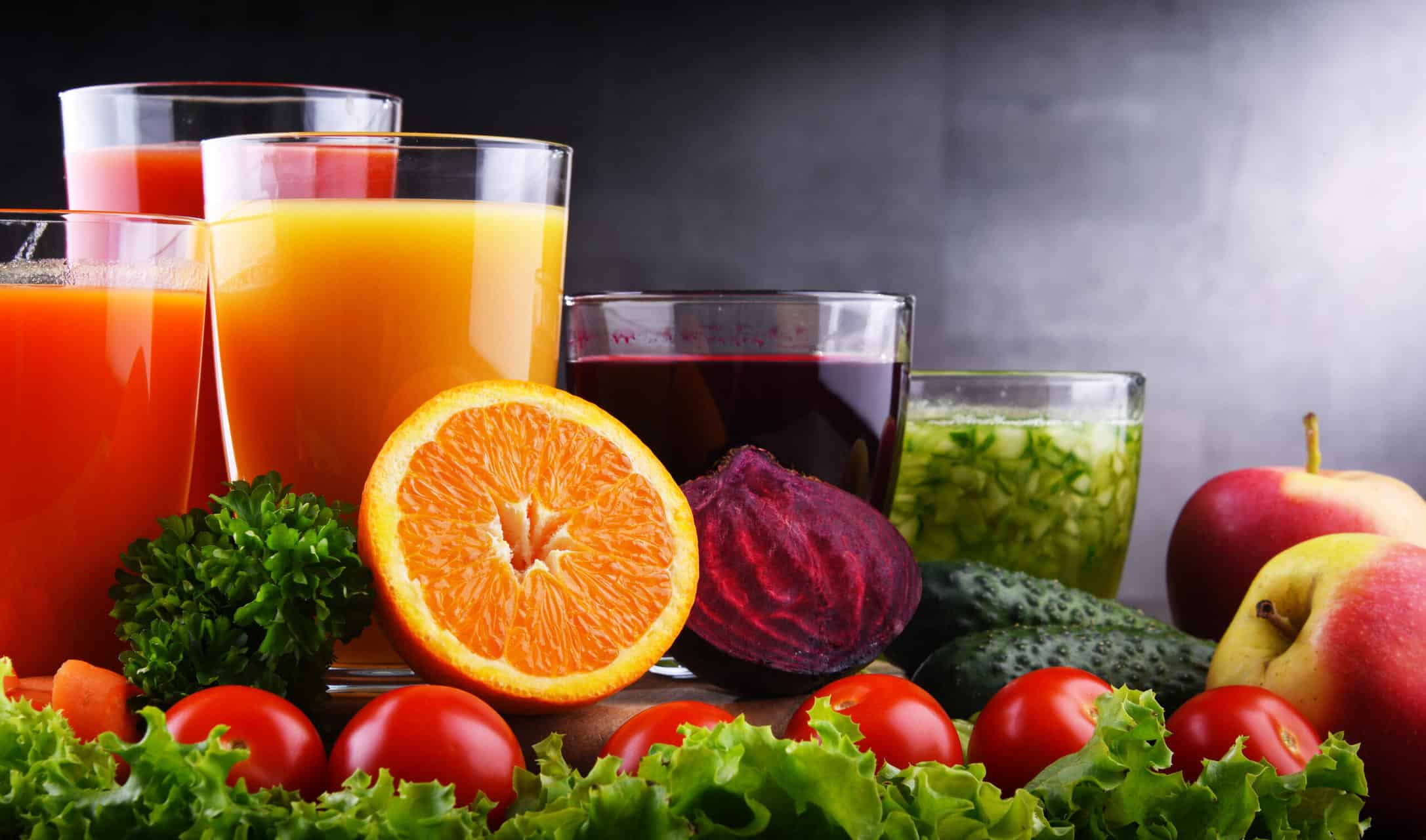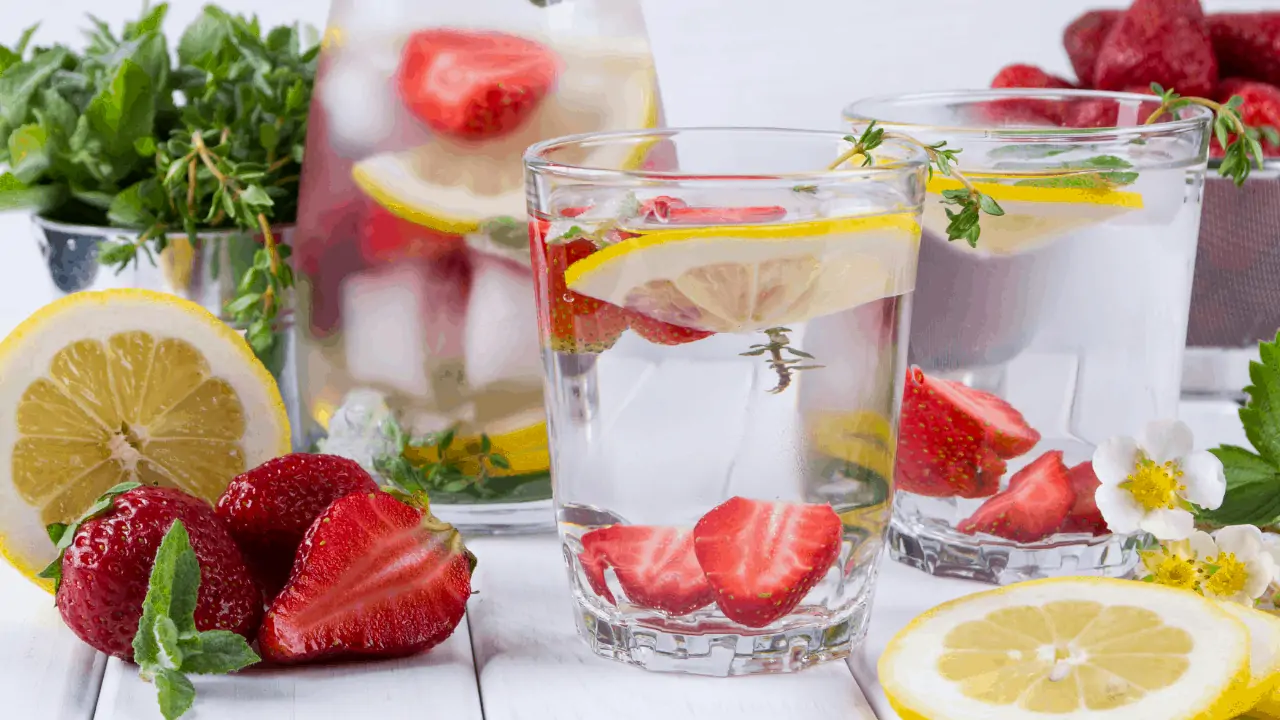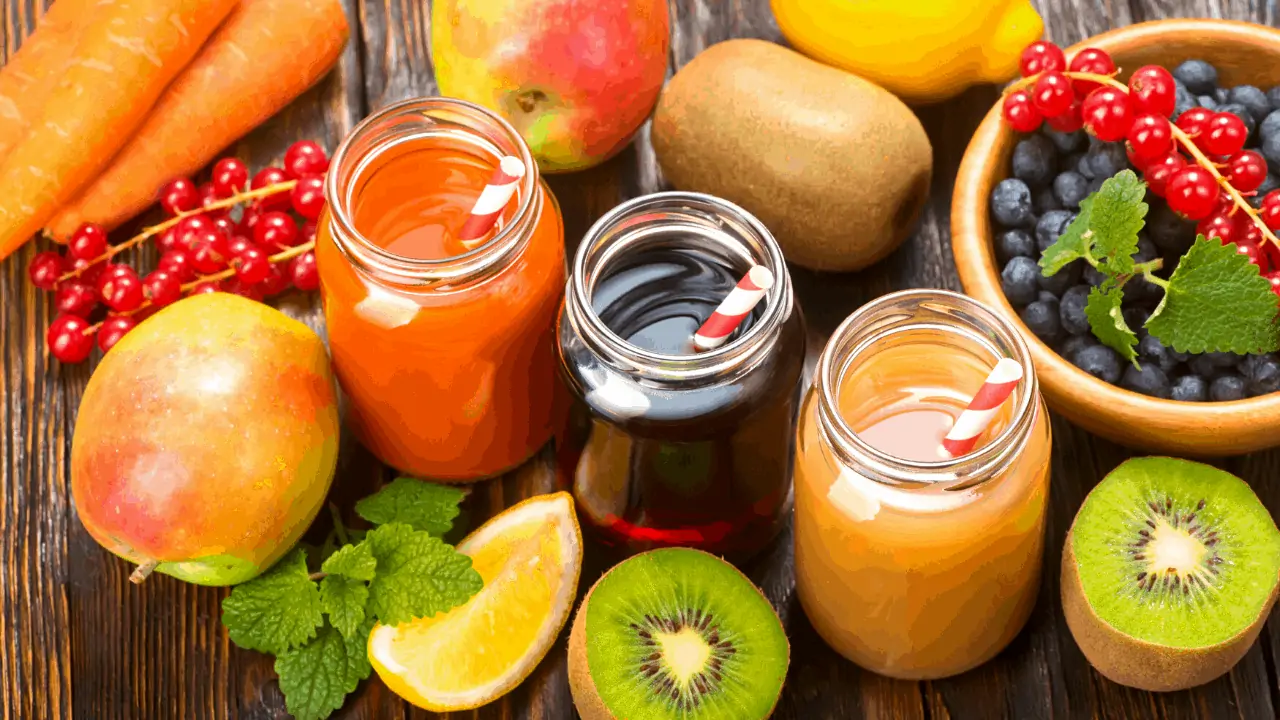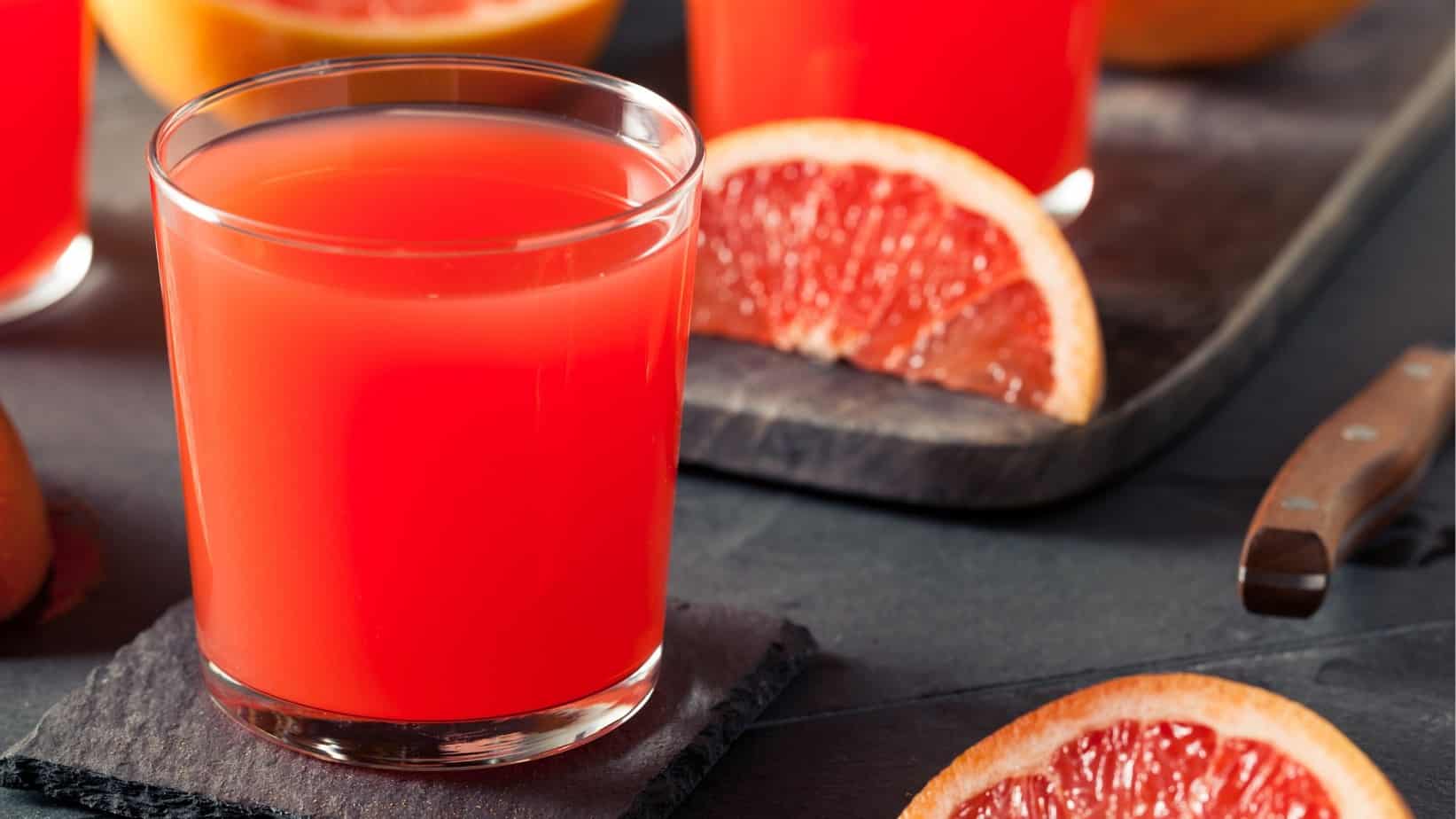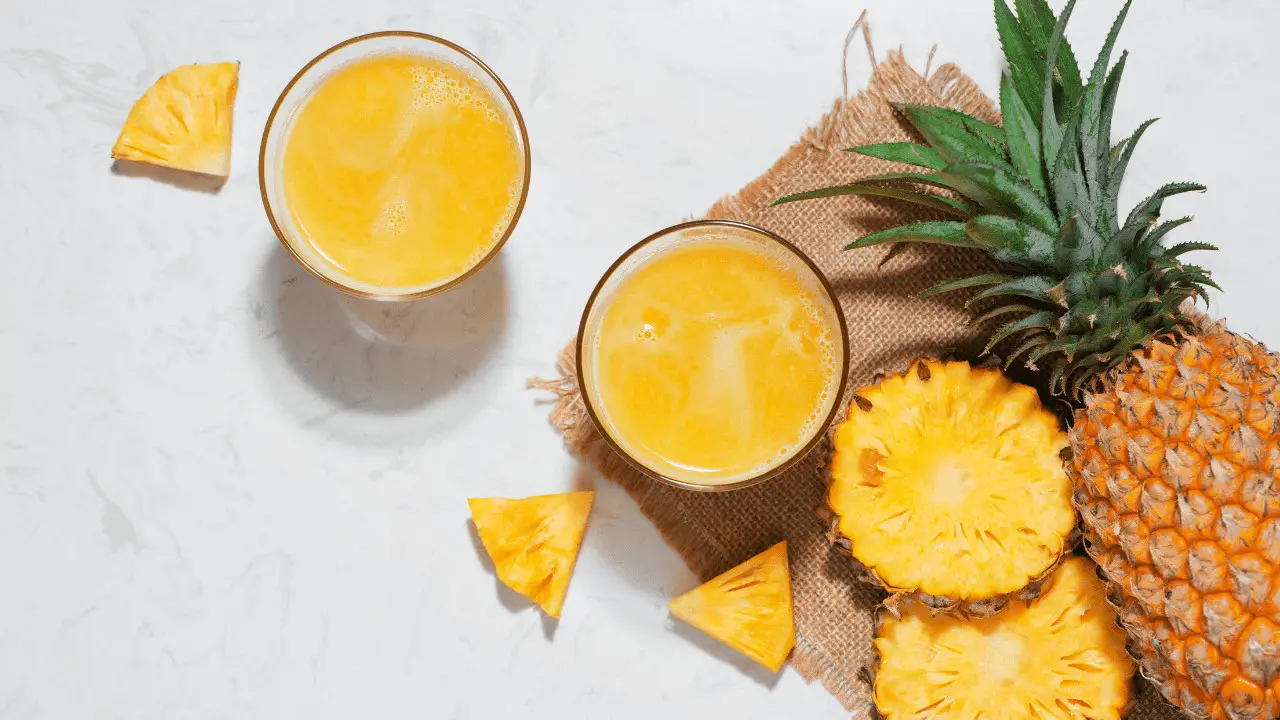Inflammation is part of our body’s immune response to kill pathogens. However, for some people, their immune system can become inflamed and attack healthy tissue. Chronic inflammation can become a deliberating issue and is consequently treated with medication.
Some people like to try to manage their conditions with natural remedies. Lots of foods have been hailed for their anti-inflammatory properties and made a great addition to juices. Research suggests that reducing inflammation could potentially hinder the development of inflammatory illnesses. Additionally, there is an undeniable link between oxidative stress and inflammation: the lower the stress the lower the inflamation. Consequently meaning the less likelihood of developing inflammatory diseases like arthritis, gout, acne, and even IBS
But although juices are not the end-all when it comes to managing inflammation. Juicing can be a useful aid in a collective lifestyle change.
Lots of foods like cherry, berries, lemon, and carrots, and ginger are packed with antioxidants and vitamins that are naturally anti-inflammatory. While juices won’t cure the likes of arthritis, heart disease, or other acute inflammation, they may help manage symptoms like joint pain and stiffness.
- Does The Type Of Juice Matter?
- Common Inflammatory Diseases People Try To Treat With Juice
- Particular Juices With Anti-Inflammatory Properties
- Anti-inflammatory Juice Recipes
- Is Juicing Better Than Eating The Fruit or Vegetable?
- What are Other Natural Drinks that Tackle Inflammation?
- What Drinks Should Be Avoided With Chronic Inflammation?
- Conclusion
Does The Type Of Juice Matter?
Yes, fresh homemade juice – or right from a smoothie bar where you can consume immediately and choose the ingredients – is the best way to go when it comes to juicing for inflammation.
Pre-made store-bought juices can have lots of additives and sugars in order to increase the shelf life. One animal study found that mice who were fed emulsifying agents commonly in foods triggered low-grade inflammation. Keep in mind that animal studies do not always yield the same results in human trials.
That said, emulsifiers are common in pre-made food and drinks because they prevent the ingredients from separating on the store shelf. Take, for example, citrate a common preservative naturally occurs in fruit and vegetables, especially in citrus fruits. One study on mice who were supplemented citrate and sucrose revealed increased levels of inflammatory cytokines in adipose tissue.
If store-bought juice is the only option for you, read the ingredients and select something as natural and fresh as possible.
Common Inflammatory Diseases People Try To Treat With Juice
- Arthritis, Gout & Osteoarthritis: Arthritis and gout is inflammation of the joints. While osteoarthritis happens when the cartilage at the end of bones is broken down. This causes pain and swelling as the bones rub against each other. Anti-inflammatory drinks can help manage joint health and reduce swelling.
- Inflammatory Bowel Disease: IBD includes Crohn’s disease and ulcerative colitis which cause chronic inflammation of the gastrointestinal (GI) tract. If the inflammation is prolonged, it can damage the GI tract and increase the risk of a leaky gut. As people with IBD suffer from nausea and digestive issues, juices are an easy way to consume more fruit and vegetables.
- Multiple Sclerosis: MS is a condition where the immune system attacks the myelin, which is a protective layer around nerve fibers. There is no cure, but treatment usually involves managing inflammation.
- Alzheimer’s & Dementia: Alzheimer’s and dementia are usually not thought to be inflammatory conditions as the main symptoms are memory loss and mood changes. However, inflammation is suspected to play a role in the development and progression of Alzheimer’s.
- Cancer: People don’t always think of inflammation when they think of cancer. However, many kinds of cancer have been linked back to inflammation and chronic irritation. Juicing is also an easy way to gain more nutrients during treatment as chemotherapy often causes nausea.
- Acne: is marked by inflammation of the skin. Anti-oxidants and vitamins have been linked with improved skin health and reduced breakouts.
Particular Juices With Anti-Inflammatory Properties
Carrot Juice
Carrots are a great source of vitamin A, beta-carotene, carotenoids, and antioxidants.
Vitamin A and beta-carotene are anti-inflammatory. Studies found that vitamin A supplementation helped to manage inflammatory conditions such as acne, broncho-pulmonary dysplasia, and cancer.
Studies found that carrot juice decreased inflammatory blood markers in rats with non-alcoholic fatty liver disease (NAFLD). This is believed to be due to the antioxidant and anti-inflammatory properties of carrots. However, human studies are needed.
Pure carrot juice is the best way to go. You can make this with regular orange carrots, but combining different kinds of carrots – like purple carrots, white carrots and yellow carrots – will be even better. The more color in our diet, the more vitamins and antioxidants there are. So, a blend of different carrots will provide the most antioxidants.
Orange juice
Studies have shown that consuming an adequate amount of vitamin C can significantly reduce inflammation.
You might have noticed that a lot of skin care products contain vitamin C. Acne vulgaris is a largely inflammatory disease. While having a good skincare routine plays a role in managing acne, a lot of it is down to what you eat.
One study based on obese adults with hypertension or diabetes found that vitamin C supplementation alleviates inflammation.
Pineapple Juice
Pineapple juice is one of the most delicious anti-inflammatory juices.
Pineapples are also an excellent source of vitamin C. So if you don’t like orange juice, you can still reap similar benefits from a glass of pineapple juice.
It’s not just the vitamin C that makes pineapple a good choice for managing inflammation. Pineapples contain bromelain.
One study in which patients with arthritis of the knee found that a combination of bromelain, trypsin, and rutin reduced pain and inflammation in a similar way as diclofenac. Bromelain has also been recommended to help manage chronic inflammatory, malignant, and autoimmune diseases beyond arthritis.
Cherry Juice
You might have already noticed cherry juice appearing in health food stores.
Cherry juice is often made from tart cherries. They are a good source of vitamin A and vitamin C, which are both anti-inflammatories. Sweet cherries are also a good source of vitamin C.
Tart cherry juice is often marketed towards athletes because it can alleviate pain-related behavior but anyone can benefit from it. While this study was on animals, others have been promising. One study on older adults found it had anti-inflammatory properties based on an increase in levels of DNA repair activity. This was a short-term study with limited participants so more research is needed.
Another study found that participants with osteoarthritis who drank cherry juice twice a day for 21 days had less inflammation and less joint pain.
Many health food stores sell tart-cherry juice concentrates. All you need to do is pour some into a glass and water it down.
You can also juice tart cherries yourself. Either juice a whole bunch of cherries alone or mix with some other fruits.
Ginger
Ginger is known for its ability to alleviate nausea but it has more medicinal properties than this.
Ginger has been linked with reducing pain in people with osteoarthritis.
The gingerol, shogaol, and similar substances in ginger have been observed to inhibit the synthesis of pro-inflammatory cytokines in the body.
Ginger is a devise taste. A pure ginger juice won’t be pleasant to drink – unless you think you can handle a strong ginger juice shot. Ginger is best when mixed with the juices of fruits and vegetables.
Berries
Berries, such as strawberries, blueberries, raspberries, and blackberries are a powerhouse of anti-oxidants. They’re also anti-inflammatory.
A common cause of inflammatory conditions is oxidative stress. Strawberries are powerful antioxidants. One study found that strawberries counteracted LPS-induced oxidative stress.
One study found that highly active participants who consumed 250 grams of blueberries for 6 weeks and higher natural killer (NK) cell counts and more anti-inflammatory cytokines. NK cells are a key part of the immune system as they kill viruses, fight disease and detect early signs of cancer.
An animal study noted that those given a high dose of red raspberry extract had a lower incidence of arthritis and less severe forms of arthritis compared to the control group.
Blackberries have been observed to have anti-inflammatory properties.
Studies have shown that blackberries ad blueberries can decrease the expression of inflammatory markers and reduce obesity-induced oxidative stress
Leafy Green Juice
Leafy greens are a key part of an anti-inflammatory diet. This includes kale, spinach and collards. These are a good source of antioxidants and vitamins.
Green Apple Juice
The saying “an apple a day keeps the doctor away” is not wrong.
A green apple is full of goodness to help reduce inflammation. A green apple will contain quercetin, which is bioflavonoids with anti-inflammatory compounds.
Red apples are also known to decrease inflammation – especially if you eat the skin or include the skin in juice. The red pigment anthocyanins are strong antioxidant compounds.
Anti-inflammatory Juice Recipes
Carrot & Ginger Recipe
For a healthy dose of vitamin C and antioxidants, juice the following ingredients together:
- 6–7 medium carrots
- 1 peeled lemon
- 1-inch piece of peeled ginger
Mixed Berry Recepie
To make a mixed berry anti-inflammatory juice, put the following ingredients in a blender:
- 1 cup raspberries
- 1 cup strawberries
- 1 cup blueberries
- 1 cup blackberries
- 2 apples
Pineapple & Ginger Juice Recipe
To make pineapple & ginger juice the following ingredients:
- 3 cups pineapple cubes
- 2 inches peeled ginger
- a dash of turmeric
- 1 lime
Pineapple & Chery Juice Recipe
To make this anti-inflammatory juice mix:
- 1 part cherry juice
- 2 parts pineapple juice
- 2 parts orange juice
If you’re using a cherry juice concentrate, half the amount of cherry juice you’re using or water down this anti-inflammatory juice recipe.
Green Juice Recipe
To make this juice, put the following ingredients in a juice:
- 1 bunch curly kale roughly chopped
- 1 large lemon
- 1-inch piece of peeled ginger
- 1 large cucumber
- 2 green apples
- 4 celery stalks
Feel free to add a few leaves of spinach to this recipe for a good dose of extra nutrients.
Is Juicing Better Than Eating The Fruit or Vegetable?
Generally, eating whole food is the best option. Having a good diet is the best solution, but juicing is an accessible way to add some more fruit and vegetables to your diet.
Some of the health benefits, nutrients, and fiber are lost during the juicing process. That said, you can try to combat this by adding the pulp back into the juice for some extra fiber.
If you’re looking up juicing for inflammation, you might not actually be able to consume all of these foods. Juicing for inflammation has lots of benefits, so you won’t be losing out on all that much if you’re not able to directly eat the foods.
What are Other Natural Drinks that Tackle Inflammation?
The problem with juicing is that it can be quite high in sugars and calories. If you’re watching what you eat, this can lead to weight gain. A low calorie or low sugar drink is not necessarily always healthy but sometimes juices and smoothies are not the healthiest choices either.
Juice and smoothies sometimes contain much more of the recommended daily amount of vitamins and minerals. Water-soluble vitamins, like the B vitamins, are not stored by the body, so will just be passed out of the body in urine. Regularly over-consuming fat-soluble vitamins, like vitamin K and vitamin A, can cause toxicity and illness. As juicing can often be overkill, some other drinks may be better suited to managing other symptoms of inflammation.
Fructose is a natural sugar occurring in fruit. Too much of this can also cause inflammation. In particular, it can inflame the endothelial cells in the blood vessels in the body and increase the risk of heart disease. Having fruit juice every now and then is fine, but don’t go overboard.
Plus if you’re diabetic, the sugar in juices might not be appropriate for you as the high sugar content can quickly raise your blood sugar levels.
Here are some other natural drinks that are good at tackling inflammation.
Green Tea & Matcha Tea
Green tea is often referred to as one of the healthiest drinks in the world.
Tea has virtually no calories – as long as you don’t add milk or sugar.
Matcha tea is more potent than green tea. They come from the same plant, but matcha is green tea leaves that are ground into a fine powder which are consumed – whereas, green tea leaves are just steeped in the glass. If you don’t like matcha powder, green tea is still beneficial at tackling inflammation.
Green tea has been linked with helping to manage conditions like heart disease as well as certain cancers and Alzheimer’s as the anti-inflammatory properties of tea are helpful at counteracting oxidative stress.
The polyphenols in green tea have also been associated with alleviating flare-ups of ulcerative colitis and Crohn’s disease.
Tulsi Tea
Tulsi tea, also known as holy basil has been growing in popularity for its health benefits such as it’s ability to boost mood and enhance immunity but it can also help manage inflammation.
Studies have shown that his herb is not only anti-inflammatory but the uric acid in the leaves and seeds of the plant can manage pain caused by arthritis issues or gout.
Turmeric milk
Turmeric is a strong antioxidant. These antioxidants can help to treat chronic inflammatory diseases.
Large amounts of turmeric are needed to have a significant effect – much more than one drink per day. However, it all adds up if you’re eating and drinking other anti-inflammatory foods.
Turmeric is best when mixed with black pepper. This is because the piperine in black pepper helps the body to absorb the curcumin in turmeric.
According to most recipes, turmeric milk – also known as golden milk – is made by heating some ground turmeric, a pinch of black pepper and cinnamon in a pot with some milk. Some people add other spices like ginger for a perfect blend to fight inflammation.
Lime water
Lime water is an easy way to add more vitamin C to your diet. The antioxidants and vitamin C content of limes are good for tackling inflammation.
This delicious drink is easy to make as you just squeeze lime into some water.
Lemon water
If you don’t like lime water, lemon water is also a great source of vitamin C and antioxidants. It’s easy to make this healthy drink. All you need to do is squeeze some lemon juice and lemon peel into a glass of water.
One study on mice with arthritis found that lemon and hot pepper extract had significant anti-arthritic and anti-inflammation effects.
CBD Tea
CBD oil and other products are hugely popular at the moment.
Studies in animals have found that CBD can reduce inflammation and can relieve pain and improve overall health. More human trials are needed. Meanwhile, the theaflavin in black tea has been associated with reducing inflammation.
CBD blend teas are popping up in health food stores but you can make your own by adding a few drops of CBD oil to a cup of black tea.
What Drinks Should Be Avoided With Chronic Inflammation?
Soda & diet soda
Consuming too much sugar has been associated with chronic inflammation. This is one of the reasons soda should be avoided for inflammation.
Diet soda isn’t off the hook either! Some of the artificial sweeteners in diet sodas can be inflammatory too.
Alcohol
Exessive consumption of alcohol has been linked with a wide range of health conditions.
One study found that people who consumed more alcohol were noted to have higher levels of the inflammatory marker CRP.
Coffee
Coffee is debatable when it comes to whether it can increase inflammation or aid the body’s natural defenses against it.
Some studies have shown that both coffee and caffeine have anti-inflammatory properties. That said, it seems to have the opposite effect on some people and causes inflammation.
Whether coffee is inflammatory or not varies from person to person.
The best thing to do is to pay attention to how you feel after you drink coffee. If you’re noticing more pain, stiffness, or symptoms of an inflammatory issue, then cut it out and see how you feel.
Energy drinks
Energy drinks are full of sugar and saturated fat which is a cause of inflammation. The sugar-free versions also have artificial sweeteners which are harmful too.
Conclusion
If you do suffer from inflammation, it’s not because you didn’t drink enough juice!
While we can use food and drink as a way to improve it and to manage certain conditions, if you’re genetically predisposed to something like dementia or heart disease then you can’t exactly juice it away. Don’t give up on your health journey just because juice can’t completely eliminate the risk of developing an inflammatory illness. Juicing still has lots of health benefits.
For many people juicing can lower the risk of developing some inflammatory conditions. One study found that people who did not consume much vitamin C had an increased risk of developing arthritis.

